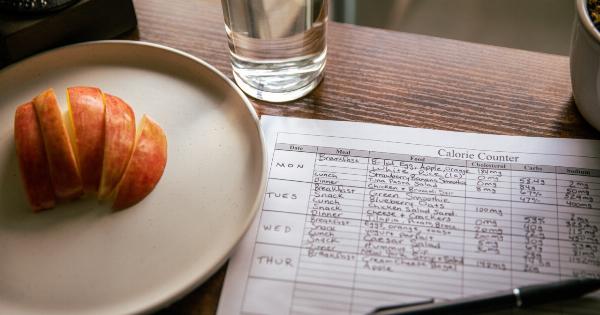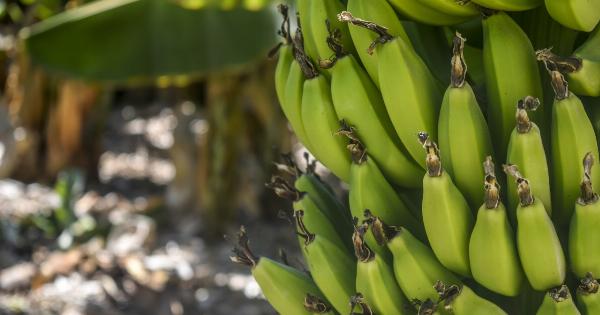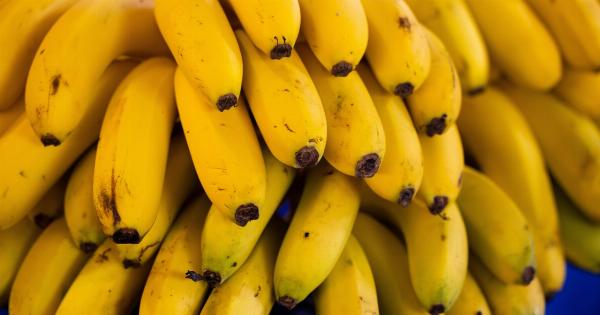Potassium is a mineral that is essential for various body processes such as regulating fluids and maintaining heart rhythm. When consumed in appropriate amounts, potassium can help reduce the risk of hypertension, stroke, and kidney stone formation.
However, people who have certain medical conditions or are on specific medications may require more potassium than the average individual. In this article, we’ll highlight foods that are rich in potassium to help you meet your daily requirements.
1. Bananas
Bananas, one of the most popular fruits in the world, are an excellent source of potassium. On average, a medium-sized banana has approximately 400-450 mg of the mineral which is roughly 10% of your daily requirement.
Bananas are also rich in fiber and vitamins such as vitamin C, vitamin B6, and folate. Apart from eating them as a snack, bananas can be used to make delicious smoothies, muffins, and bread.
2. Avocado
Avocados, a versatile fruit, contain high amounts of potassium. A medium-sized avocado contains about 700 mg of potassium which is equivalent to 15-20% of your daily requirement. Additionally, avocados are rich in healthy fats, fiber, and antioxidants.
They can be used to make various dishes such as guacamole, salads, and sandwiches.
3. Spinach
Spinach, a green leafy vegetable, is not only rich in iron but also potassium. One cup of cooked spinach contains about 840 mg of potassium, which is approximately 20% of your daily requirement.
Spinach is also a good source of vitamin A, vitamin C, and vitamin K. It can be used to make dishes such as pasta, quiche, and soups.
4. Sweet Potatoes
Sweet potatoes, a root vegetable, are an excellent source of potassium. One medium-sized sweet potato contains about 450-500 mg of potassium which is roughly 10-15% of your daily requirement.
Sweet potatoes are also rich in fiber, vitamin A, and vitamin C. They can be used to make dishes such as fries, casseroles, and pies.
5. White Beans
White beans, a type of legume, are a great source of potassium and other nutrients such as protein and fiber. One cup of cooked white beans contains about 1000 mg of potassium which is equivalent to 20-25% of your daily requirement.
White beans are also rich in iron, folate, and magnesium. They can be used to make dishes such as soups, stews, and salads.
6. Yogurt
Yogurt, a dairy product, is not only a good source of calcium but also potassium. One cup of plain yogurt contains about 400-500 mg of potassium which is roughly 10-15% of your daily requirement. Yogurt is also rich in probiotics and protein.
It can be consumed as a snack or used to make dishes such as smoothies, dips, and desserts.
7. Salmon
Salmon, a fatty fish, is a great source of potassium and other nutrients such as omega-3 fatty acids, protein, and vitamin D. A 3-ounce serving of salmon contains about 450 mg of potassium which is roughly 10-15% of your daily requirement.
Salmon can be eaten grilled, baked, or poached and can be served as a main dish or in salads.
8. Tomatoes
Tomatoes, a popular fruit, are an excellent source of potassium and other nutrients such as vitamin C, vitamin A, and lycopene. One medium-sized tomato contains about 290 mg of potassium which is equivalent to 6-8% of your daily requirement.
Tomatoes can be used to make dishes such as salads, soups, and sauces.
9. Mushrooms
Mushrooms, a type of fungi, are not only low in calories but also a good source of potassium. One cup of sliced mushrooms contains about 300-400 mg of potassium which is roughly 6-10% of your daily requirement.
Mushrooms are also rich in selenium and B-vitamins. They can be used to make dishes such as omelets, stir-fries, and pasta.
10. Orange Juice
Orange juice, a popular beverage, is not only a good source of vitamin C but also potassium. One cup of orange juice contains about 450 mg of potassium which is equivalent to 10-15% of your daily requirement.
However, it is recommended to choose freshly squeezed orange juice or orange juice with no added sugars. Orange juice can be consumed as a breakfast beverage or used to make smoothies.
Conclusion
Potassium is an essential mineral that plays various roles in the body. Consuming foods that are rich in potassium can help reduce the risk of certain medical conditions and also promote overall health.
The above-listed foods are great sources of potassium and can be incorporated into your diet in various ways. However, it is essential to note that excessive intake of potassium can be harmful, especially to people with certain medical conditions.
Hence, it is recommended to consult with a healthcare provider before increasing potassium intake through supplements or diet changes.


























